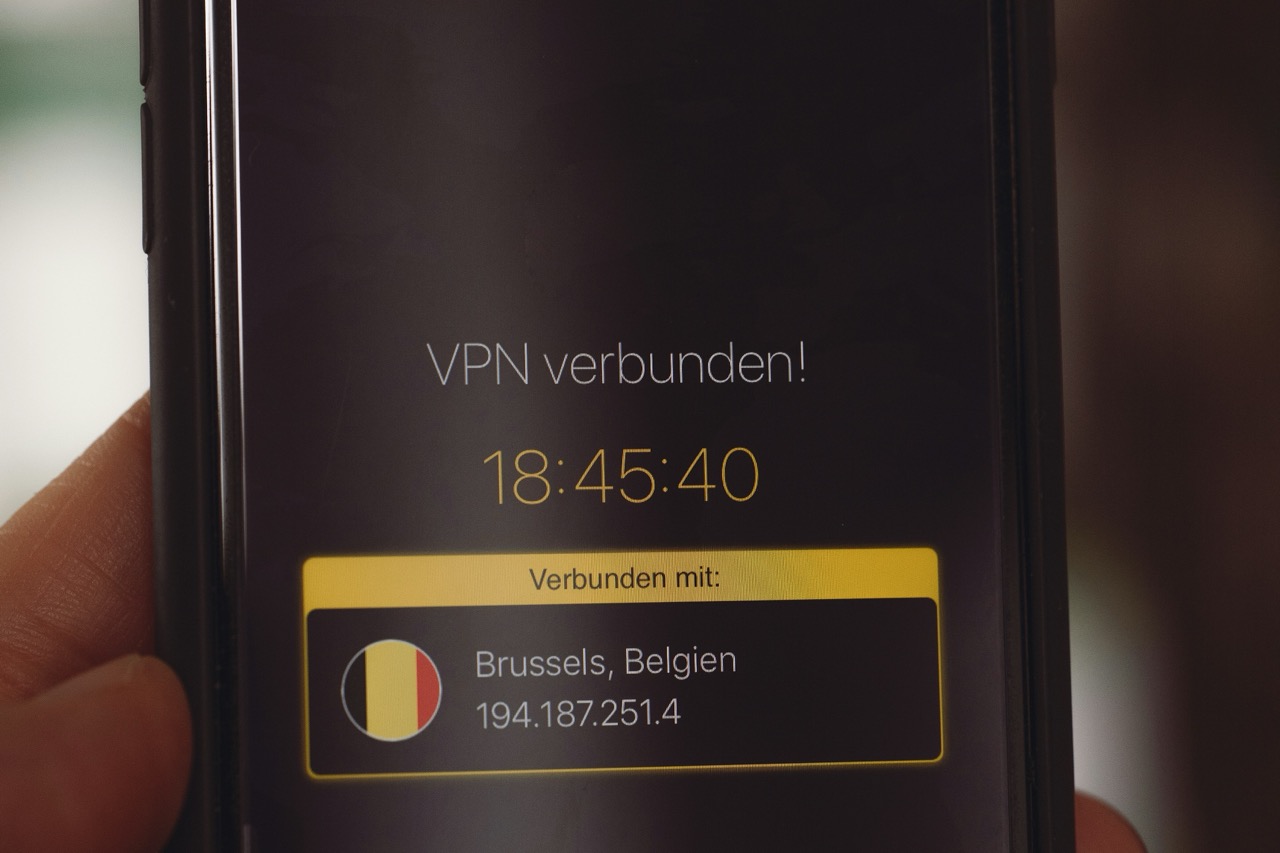In an increasingly digital world, online privacy and security have become critical issues for individuals and businesses alike. With the rise in cyber threats and data breaches, it’s vital to employ strategies that protect personal information and online activities. One of the most effective tools available for securing online identity is a Virtual Private Network (VPN). This article explores the role of VPNs in safeguarding online identity through technical insights into their functionality, encryption methods, and their effectiveness against various cyber threats.
Understanding VPN Technology: A Technical Overview
A Virtual Private Network (VPN) functions as a secure tunnel between a user’s device and the internet, facilitating the transfer of data in a protected manner. When a user connects to a VPN, their internet traffic is routed through a remote server operated by the VPN provider. This process masks the user’s IP address and makes their online actions more difficult to trace. VPNs achieve this by encapsulating data packets and encrypting information, effectively providing a layer of anonymity for users browsing the web.
The core technology underlying VPNs typically includes tunneling protocols that establish the connection between the user and the VPN server. These protocols, such as OpenVPN, L2TP/IPSec, and PPTP, dictate how data is encapsulated and transmitted. Different protocols offer varying levels of security, speed, and compatibility with different devices and operating systems. Understanding these protocols is essential for users seeking to maximize their online security and optimize their internet experience.
Additionally, VPNs come equipped with various features designed to enhance user security. Features such as kill switches, DNS leak protection, and multi-hop connections ensure that user data remains protected even if the VPN connection drops unexpectedly. These technologies are crucial in maintaining a secure online presence, especially for users who regularly engage in sensitive activities online.
How VPNs Encrypt Data to Protect Your Online Activities
Encryption is the cornerstone of a VPN’s ability to safeguard user data. When data is encrypted, it is transformed into a format that is unreadable without the appropriate decryption key. Most reputable VPN services employ advanced encryption standards, such as AES-256, which is considered nearly unbreakable by current computing standards. This level of encryption ensures that sensitive information, including login credentials, financial transactions, and personal communications, remain secure from prying eyes.
In addition to robust encryption methods, VPNs often utilize two main forms of encryption: symmetric and asymmetric encryption. Symmetric encryption uses the same key for both encryption and decryption, providing speed and efficiency for data transfer. In contrast, asymmetric encryption employs a pair of keys – one public and one private – enhancing security during key exchange operations. Together, these encryption methods ensure that data is not only protected during transmission but also that the integrity of the data is maintained throughout the process.
Moreover, the implementation of perfect forward secrecy (PFS) in some VPN services adds an extra layer of security. PFS ensures that even if a user’s encryption key is compromised, past communications remain secure, as each session generates a unique encryption key. This level of security is paramount for individuals who prioritize confidentiality in their online activities, such as journalists, activists, and professionals handling sensitive information.
The Impact of IP Address Masking on User Privacy
One of the primary functions of a VPN is its ability to mask a user’s IP address. By connecting to a VPN server, the user’s original IP address is replaced with that of the server, effectively anonymizing their online presence. This IP address masking prevents websites, advertisers, and even potential malicious entities from tracking a user’s online behavior, thereby enhancing privacy and security.
IP address masking is particularly vital in protecting user identity while accessing geo-restricted content or services. For instance, many streaming platforms restrict access based on geographical location. By using a VPN, users can connect to servers in different countries, bypassing these restrictions and accessing content that may not be available in their region. This functionality not only broadens access to information but also contributes to a more open internet.
Furthermore, the ability to obscure one’s IP address helps mitigate risks related to targeted cyberattacks. Cybercriminals often exploit easily accessible IP addresses to launch attacks, such as Distributed Denial of Service (DDoS) attacks or phishing attempts. By masking their IP address through a VPN, users significantly reduce their exposure to these risks, making it more challenging for attackers to identify and target them.
VPN Protocols: Evaluating Security Standards and Features
VPN protocols play a crucial role in determining the security and performance of a VPN service. There are several widely used protocols, each with its own strengths and weaknesses. OpenVPN is often regarded as the gold standard due to its robust security features, versatility, and open-source nature. It supports a range of encryption algorithms and is compatible across multiple platforms, making it suitable for a wide array of applications.
Another noteworthy protocol is IKEv2/IPSec, which is known for its speed and stability, particularly on mobile devices. IKEv2 allows for seamless reconnections during network changes, which is beneficial for users who move between different types of networks. However, while IKEv2 is secure, it is less widely supported than OpenVPN, which could limit its usability for some users.
L2TP/IPSec and PPTP are two other protocols that users may encounter. L2TP/IPSec combines the tunneling capabilities of L2TP with the security of IPSec, offering a reasonable balance of speed and security. However, it may not provide the same level of security as OpenVPN or IKEv2. PPTP, while fast and easy to set up, is considered outdated and less secure due to vulnerabilities that have been exploited over time. When selecting a VPN service, users must carefully evaluate the protocols offered and their specific security standards to ensure they choose a service that meets their needs.
Risks of Public Wi-Fi: How VPNs Provide Essential Protection
Public Wi-Fi networks pose significant security risks, as they are often unencrypted and easily accessible to anyone within range. Cybercriminals frequently exploit these networks to intercept sensitive information, including passwords, credit card numbers, and personal messages. The absence of adequate security measures on public Wi-Fi means that users are particularly vulnerable when performing sensitive tasks without the protection of a VPN.
By utilizing a VPN while connected to a public Wi-Fi network, users can safeguard their data through encryption and secure tunneling. This encryption ensures that any information transmitted over the network is unreadable to potential attackers, effectively shielding users from man-in-the-middle attacks and data interception. Consequently, a VPN serves as a vital defense mechanism for anyone who frequently utilizes public Wi-Fi, such as travelers and remote workers.
Moreover, VPNs can help users bypass network restrictions that may be imposed on public Wi-Fi networks, such as those found in cafes, airports, or hotels. Many of these networks limit access to certain websites or services, which can be frustrating for users seeking to work or access information. By connecting to a VPN, users can not only secure their data but also regain freedom to access information without restrictions. This dual functionality makes VPNs an essential tool for maintaining security and accessibility in public spaces.
Choosing the Right VPN: Factors for Online Identity Security
Selecting the right VPN service is paramount for ensuring online identity security. Users should prioritize VPNs that have a strict no-logs policy, which guarantees that the provider does not retain any records of user activity. This feature is critical for maintaining privacy and anonymity, as it ensures that even if a request for data is made by authorities, there is nothing to disclose. Investigating the VPN provider’s privacy policy and past legal challenges can help users make informed choices.
Another vital factor to consider is the range of encryption standards and protocols supported by the VPN. Users should opt for a VPN that employs industry-standard encryption methods, such as AES-256, alongside robust protocols like OpenVPN or IKEv2. The provider’s transparency regarding their encryption practices and any independent security audits they may have undergone is also an important aspect to assess. This information can give users confidence in the security measures implemented by the service.
Finally, the VPN’s performance in terms of speed, server locations, and customer support should also factor into the decision-making process. A reliable VPN should offer a wide range of servers across various geographic locations, providing users with the flexibility to bypass regional restrictions while maintaining optimal connection speeds. Furthermore, responsive customer support is crucial, as it ensures that any technical issues can be promptly addressed, allowing users to enjoy uninterrupted security and privacy online.
In conclusion, a Virtual Private Network (VPN) plays an essential role in securing online identity by providing encryption, IP address masking, and critical protections against various cyber threats. With the prevalence of cyber-attacks, data breaches, and the inherent risks associated with public Wi-Fi, employing a VPN has become a necessary measure for individuals and organizations alike. By understanding VPN technology, evaluating the various options available, and selecting a reputable provider, users can significantly enhance their online security and protect their identity in the digital landscape.










